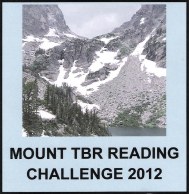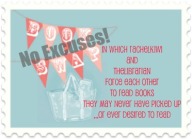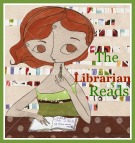“This is a man’s world…but it ain’t nothing without a woman or a girl…”
Katsa was born with two different colored eyes. Eyes that would be especially beautiful if they didn’t tell the world that Katsa was graced. Eyes that could potentially still be an asset if Katsa’s grace didn’t instill fear in all who recognize her.
Katsa is a Killer. Her grace of fighting leaves her practically invincible battle.
That her guardian, her Uncle the king, has used her as a henchman and a tool of power since Katsa’s first accidental kill as a young girl leaves her feared across the Seven Kingdoms without friend and with very few natural foes.
Until she stumbles upon a man who can take her down. An attractive, perceptive man who can take her in a fight. A man who wants to care for her as a woman as well.
But this tale is not a love story. It is a tale of survival, of political intrigue, and of finding yourself. If learning what your true grace is grants you the ability to love as well…then life may just be worth living…
Review
Before I began this beloved book I did a little poking around the internet. I knew people always mention this book and I wanted to gather a sense of why (without too much spoiler-ific plot giveaways). What I noticed from the start was this fairly heated discussion of the feminist view of the book.
People generally fall into two camps when looking at the character of Katsa:
Man-Hater or Feminist
And I’m here to say that I’m not sure the character of Katsa is either. True, she doesn’t trust men much…but she’s been ostracized by men because she’s been graced with a traditionally ‘male’ grace. She also doesn’t care for women…but again, she’s been treated more like a man and shunned by polite society because of her grace. Why would she find enjoyment in a societal stereotype that so greatly works against her?
No wonder Katsa has retreated into her own world – she’s been mistreated, misunderstood, and shunned by almost everyone.
One thing we need to remember before saluting certain characters for being feminists is the difference between an Author’s point of view and the Character’s point of view. Often times (like with Katsa) we call the character a feminist because she upholds certain ideals –
I.E. being a strong woman, deciding what is right for her and her body when it comes to sex even if her choices fall out of society dictates, saving the day and exceeding men in manly talents and starting a school for women.
While all of these examples fall into a traditional feminist theme. The biggest issue is that Katsa herself has no conscious intentions to better the role of women in her society. None. She hates the women as much as she hates the men. While in the end Katsa does start a training school for women – it is the only point where she actively does something proactive for female society. And, quite frankly, if there was a woman who preferred needlepoint to a round-kick Katsa wouldn’t give her a second thought.
If she’s a feminist in any way it’s an accident, or confusion on the reader’s part mixing up the Author’s and the Character’s intentions. If anything it’s Katsa’s complete lack of social awareness and perspective that makes her seem like a mean feminist/man-hater. It’s really all an accident. Cashore, however, seems to be very concerned with the role of women. Each of her books is teeming with unique situations that ask her female characters to interact with a society not welcoming to their particular gifts. It’s thought-provoking to watch these women change and make decisions based on their own preferences rather than societies’.
I’ll admit that after my internal discussion concerning Katsa’s feminism (or lack there of) I found I didn’t always like her. I respected her. I enjoyed her story – especially the second half – but I had trouble liking her. I think why I truly didn’t connect was because she was so incredibly imperceptive of her own feelings! I mean really, obviously she was attracted to Po sexually. And not everyone was so repressed in this society. Po himself is more than perceptive. Even without his grace Po is one smart cookie, there were times when I wondered how he wasn’t becoming frustrated with Katsa.
And that whole husband vs. lover argument…Seriously? Are we forgetting that in any relationship freedom taken is freedom given by the other party. The man doesn’t hold all the cards in either situation. True, without the legal committment in this world there are certain freedoms women automatically get to keep (like their land and money) but what matters most is emotional investment – Katsa is only fooling herself if she thinks it’s easier one way versus the other when it comes to feelings.
Rating: 4/5 How I love the ending of this book! Everything after part 1 – their love, their growth, their acceptance…well done!









